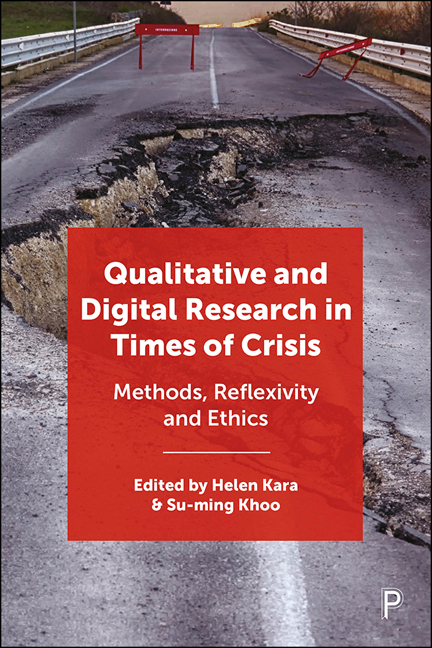7 - Developing a Collaborative AutoNetnographic approach to researching doctoral students’ online experiences
Published online by Cambridge University Press: 13 May 2022
Summary
Out of adversity comes opportunity.
Benjamin FranklinIntroduction
2020 was a year few will forget. The COVID-19 global pandemic resulted in massive changes to people's lives, particularly in relation to the use of online communication tools. While video conferencing and communication tools had been used before the global 2020 COVID-19 crisis, this increased across all aspects of society, including healthcare (Lee, 2020; Wosik et al, 2020), business (Obrenovic et al, 2020), education (Dhawan, 2020), entertainment and recreation (Agostino, Arnaboldi, and Lampis, 2020; Son et al, 2020b), and for personal use (Farooq, Laato, and Islam, 2020). Schools and universities rapidly shifted to online learning modalities (Garbe et al, 2020; Rapanta et al, 2020). In tertiary education, this presented both challenges and opportunities. One challenge was to continue to support learning in an engaging environment. However, this also provided research opportunities focused on the impact and benefits of online learning as well as opportunities to develop innovative research methodologies aligned to an online world.
This chapter reveals the development of one such methodology, Collaborative AutoNetnography. The development of a Collaborative AutoNetnographic methodology stemmed from an online initiative created to support doctoral students during COVID-19. Discussions by Higher Degree by Research (HDR) candidates during online sessions related to the potential of conducting a research project focused on their experiences concerning the initiative.
We begin this chapter by reviewing the context within which the initiative was developed. We then discuss the various individual methodologies that we drew upon to develop Collaborative AutoNetnography and discuss how the research methodology was implemented, including reflections of key enablers, barriers, and ethical aspects.
Background
A key public health response to COVID-19 was to impose physical and social distancing restrictions on all citizens (Lewnard and Lo, 2020). In Australia these restrictions were imposed across the country in late March 2020. These restrictions resulted in people being required to spend much of their time at home, with only some limited opportunities to venture to other locations, primarily for food and medical care (Australian Broadcasting Corporation, 2020).
- Type
- Chapter
- Information
- Qualitative and Digital Research in Times of CrisisMethods, Reflexivity and Ethics, pp. 113 - 128Publisher: Bristol University PressPrint publication year: 2021



